139. We had better repeat and consolidate.
Reculer pour mieux sauter. The right ascension
days were visible close to the Full Moon and when
Sirrah was observed at the Full Moon it could be
deduced the Sun had reached the star Alchita in the
Raven constellation. Sirrah (*366) =
*183 (Alchita) + *366 / 2. At the time of the Pope,
however,
the Sun would have been at Acrux in ºSeptember 20
(*183) when the Full Moon was at 0h.
|
no glyph |
 |
 |
 |
 |
 |
 |
|
Ca1-1 |
Ca1-2 |
Ca1-3 |
Ca1-4 |
Ca1-5 |
Ca1-6 |
|
koia |
ki te hoea |
ki te henua |
te rima te hau tea |
haga i te mea ke |
ki te henua - tagata honui |
|
INVISIBLY CLOSE TO THE SUN
(helical dates): |
|
ºSept 16 |
17 (260) |
18 |
19 |
20 (*183) |
21 (264) |
EQUINOX
|
|
ALCHITA
= α Corvi,
MINKAR (Beak)
= ε Corvi |
PÁLIDA (Pale)
= δ Crucis |
GIENAH (Wing)
= γ Corvi, ζ Crucis |
CHANG SHA (Long Sand-bank)
= ζ Corvi |
INTROMETIDA
= ε Crucis,
ACRUX
= α Crucis |
ALGORAB
= δ Corvi,
GACRUX
= γ Crucis |
AVIS
SATYRA
= η Corvi,
KRAZ
= β Corvi |
|
Sept 20
'Aug 24 |
(264 = 237 + 27)
(237
= 242 - 5) |
EQUINOX
26 |
23 (266)
27 |
24
28 (240) |
25 (*5 + 183)
29 |
(59 + 183 + 27)
30 (242 = 11 * 22) |
|
"Aug 10 |
11 |
12 |
13 |
14 |
15 (227) |
16 |
|
JULY 18 |
19 (264 - 64) |
20 |
21 |
22 / 7 (π) |
23 |
24 (*125) |

... There was no water in the village. The
lakes and rivers were dry. Raven and Crow,
two young girls who were having their first
menstrual courses, were told to go and draw
water from the ocean. Finding the journey
too long, Raven decided just to urinate into
her basket-bucket. She decieved no one and
was severly scolded. Crow returned much
later but with drinking water. As a
punishment, Raven was condemned never to
find water in the summer; only in winter
would she find something to drink. For that
reason the Raven never drinks during the hot
months; she speaks with a raucous voice
because of her dry throat ... |
|
CLOSE TO THE FULL MOON (and
nakshatra dates): |
|
ºMarch 17 |
18 (77) |
19 |
20 (*365) |
21 (0h) |
22 |
23 |
|
SIRRAH
(Navel of the Horse)
= α Andromedae |
ALGENIB PEGASI |
|
|
|
ANKAA = α Phoenicis
(5.0) |
|
|
March 21 (0h)
'Febr 22 |
22
TERMINALIA |
23
24 |
24 (83)
25 |
JULIAN EQUINOX
26 |
26
27 |
27
28 (59) |
|
"Febr 8 |
9 |
10 |
11 |
12 |
13 |
14 (45) |
|
JAN 16 |
17 |
18 |
19 |
20 (= 84 - 64) |
21 |
22 |
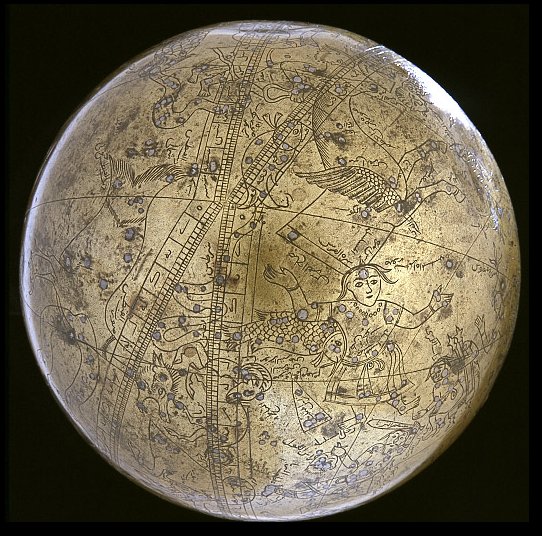 |
|
236 |
 |
 |
 |
 |
 |
 |
105 |
|
Ca9-15 (6 + 237) |
Ca9-16 |
Ca9-17 (245) |
Ca9-18 |
Ca9-19 |
Ca9-20 (248) |
|
i te mauga
pu hia |
E rima ki
te henua |
koia ku
honui |
erua
maitaki |
ko koe ra |
|
INVISIBLY CLOSE TO THE SUN
(helical dates): |
|
*60 (= 140 - 80) |
*61 = *244 - *183 |
BEID (Egg) |
HYADUM I |
HYADUM II |
Net-19 (Crow)
AIN (Eye) |
|
May 20 (140) |
21 |
22 (325 - 183) |
23 |
24 |
(145 = 104 + 41) |
|
ºMay 16 (136) |
17 |
18 (321 - 183) |
19 |
20 |
(141 = 104 + 37) |
|
'April 23 (113) |
24 |
25 (298 - 183) |
26 |
27 |
(4 * 29½ = 104 + 14) |
|
"April 9 |
(100 = 283 - 183) |
11 (101) |
12 |
4-13 → 14 * 29½ |
14 (104) |
|
MARCH 17 |
18 (77 = 260 - 183) |
19 (78 = 101 - 23) |
(*365) |
(*366) |
*1 = * 65 - *64 |
|
...
A very
detailed myth comes from the
island of Nauru. In
the beginning there was
nothing but the sea, and
above soared the Old-Spider.
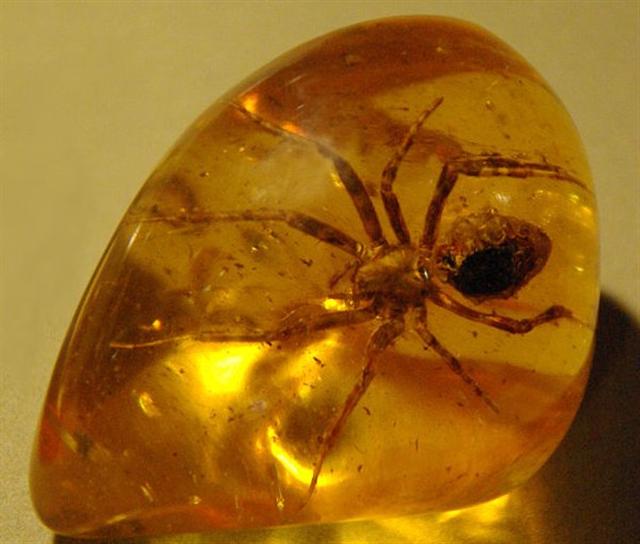
One day the
Old-Spider found a giant
clam, took it up, and tried
to find if this object had
any opening, but could find
none. She tapped on it, and
as it sounded hollow, she
decided it was empty. By
repeating a charm, she
opened the two shells and
slipped inside. She could
see nothing, because the sun
and the moon did not then
exist; and then, she could
not stand up because there
was not enough room in the
shellfish. Constantly
hunting about she at last
found a snail. To endow it
with power she placed it
under her arm, lay down and
slept for three days. Then
she let it free, and still
hunting about she found
another snail bigger than
the first one, and treated
it in the same way. Then she
said to the first snail:
'Can you open this room a
little, so that we can sit
down?' The snail said it
could, and opened the shell
a little. Old-Spider
then took the snail, placed
it in the west of the shell,
and made it into the moon.
Then there was a little
light, which allowed
Old-Spider to see a big
worm. At her request he
opened the shell a little
wider, and from the body of
the worm flowed a salted
sweat which collected in the
lower half-shell and became
the sea. Then he raised the
upper half-shell very high,
and it became the sky.
Rigi, the worm,
exhausted by this great
effort, then died.
Old-Spider then made the sun
from the second snail, and
placed it beside the lower
half-shell, which became the
earth ... |
|
CLOSE TO THE FULL MOON (and
nakshatra dates): |
|
*243 (= 323 - 80) |
*244 |
YED PRIOR = δ Ophiuchi |
YED POSTERIOR = ε Ophiuchi |
Heart-5 (Fox)
σ SCORPII |
*248 |
|
Nov 19 (86 + 237) |
20 (324) |
21 |
(285 + 41) |
23 |
24 |
|
ºNov 5 (82 + 237) |
16 (320) |
17 |
(285 + 37) |
19 |
20 |
|
'Oct 23 (59 + 237) |
24 |
25 |
(285 + 14) |
27 (300) |
28 |
|
"Oct 9 (45 + 237) |
10 (283) |
11 |
12 (285) |
13 |
14 |
|
SEPT 16 (22 + 237) |
17 (260) |
18 |
19 (285 - 23) |
20 |
21 (264) |
|
The lines of right
ascension ought to be
counted from Sirrah in the
night and the Sun days then found
out
by adding or subtracting 183
days. The glyph numbers
agree with the right
ascension days close to the
Full Moon - as they would have
been at the time of
rongorongo. The star
positions at the time of
Hyadum II could be found out by
subtracting *64, and *248
(November 24) -
*64 = *184 (SEPTEMBER 21) which means that
at that ancient time the
northern autumn equinox
would come
immediately after the
standing man in glyph number
248, where his peculiar ears
(> <) may have illustrated
this equinox.
As to the Chinese 5th
station Heart with the cue
Fox, i.e. the tiny star Alcor
high up in Ursa Major and straight above
Spica:
... Proclus informs us that
the fox star nibbles
continuously at the thong of
the yoke which holds
together heaven and earth;
German folklore adds that
when the fox succeeds, the
world will come to its end.
This fox star is no other
than Alcor, the small
star g near zeta Ursae
Majoris (in India
Arundati, the common
wife of the Seven Rishis,
alpha-eta Ursae
...
... In the inscriptions of
Dendera, published by
Dümichen, the goddess
Hathor is called 'lady
of every joy'. For once,
Dümichen adds: Literally ...
'the lady of every heart
circuit'. This is not to say
that the Egyptians had
discovered the circulation
of the blood. But the
determinative sign for
'heart' often figures as the
plumb bob at the end of a
plumb line coming from a
well-known astronomical or
surveying device, the
merkhet. Evidently,
'heart' is something very
specific, as it were the
'center of gravity' ... See
Aeg.Wb. 2, pp. 55f. for sign
of the heart (ib) as
expressing generally 'the
middle, the center'.
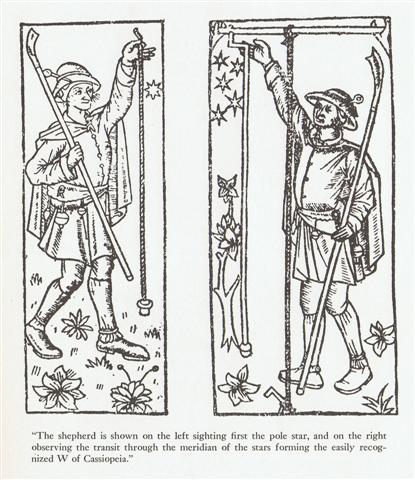 |
 |
 |
 |
 |
 |
|
Ca13-16 |
Ca13-17 |
Ca13-18
(361) |
Ca13-19 |
Ca13-20 (→ 260) |
|
oho te vae |
tagata puoko
erua |
tagata puo
pouo |
vero hia |
- |
|
INVISIBLY CLOSE TO THE SUN
(helical dates): |
|
Sept 13 (256) |
14 (*177 = *360 - *183) |
DENEB-OLA |
16 |
17 (*180) |
|
ºSept 9 (252 = 69 + 183) |
10 (*173) |
11 |
12 (255) |
13 |
|
'Aug 17 (229) |
18 (*150) |
19 |
20 |
21 |
|
"Aug 3 (215) |
4
(*136) |
5 |
6 |
7 |
|
JULY
11 (192) |
12 |
13 |
14 |
15 (196 = 88 + 108) |
|
The
Polynesian ear probably heard -ola in Denebola as
ola (life) - i.e. this
was the place where the Lion
of Summer (ho-ra)
ended, where he had his tail, deneb.
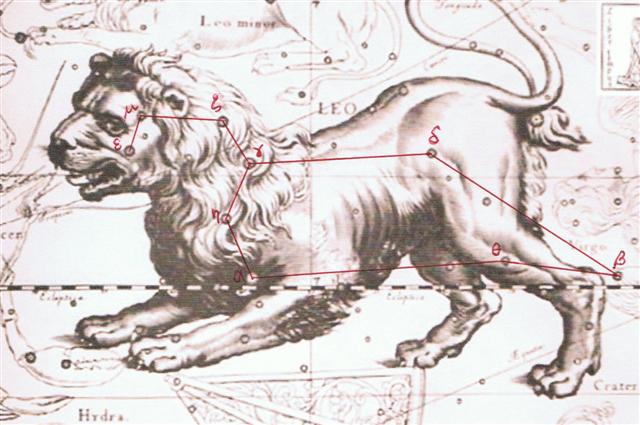
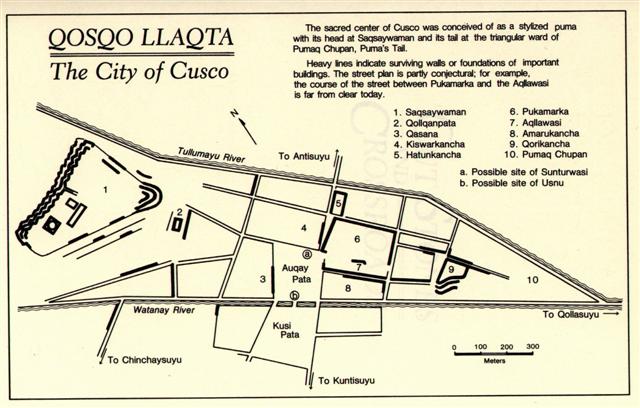
"tenebræ,
Holy Week devotion (matins
and lauds) at which candles
lighted at the beginning are
successively put out. XVII.
L. (pl.), parallel to Skr.
támah, g. támasah,
Lith. tamsà, Lett.
timsa darkness, and
referred to *tem∂srā
and cogn. with Skr., Baltic.
and Celtic forms." (English
Etymology)
...
Like archaic China and
certain Amero-Indian
societies, Europe, until
quite recently, celebrated a
rite involving the
extinguishing and renewal of
domestic fires, preceded by
fasting and the use of the
instruments of darkness.
This series of events took
place just before Easter, so
that the 'darkness' which
prevailed in the church
during the service of the
same name (Tenebrae),
could symbolize both the
extinguishing of domestic
fires and the darkness which
covered the earth at the
moment of Christ's death. In
all
Catholic countries it was
customary to extinguish the
lights in the churches on
Easter Eve and then make a
new fire sometimes with
flint or with the help of a
burning-glass. Frazer brings
together numerous instances
which show that this fire
was used to give every house
new fire ...
... And so they waited there
in the darkness at the place
where the sun rises. At
length the day dawned, a
chilly grey at first, then
flaming red. And the sun
came up from his pit,
suspecting nothing. His fire
spread over the mountains,
and the sea was all
glittering. He was there,
the great sun himself, to be
seen by the brothers more
closely than any man had
ever seen him. He rose out
of the pit until his head
was through the noose, and
then his shoulders. Then
Maui shouted, and the
ropes were pulled, the noose
ran taut. The huge and
flaming creature struggled
and threshed, and leapt this
way and that, and the noose
jerked up and down and back
and forth; but the more the
captive struggled, the more
tightly it held.
Then out rushed Maui
with his enchanted weapon,
and beat the sun about the
head, and beat his face most
cruelly. The sun screamed
out, and groaned and
shrieked, and Maui
struck him savage blows,
until the sun was begging
him for mercy. The brothers
held the ropes tight, as
they had been told, and held
on for a long time yet. Then
at last when Maui
gave the signal they let him
go, and the ropes came
loose, and the sun crept
slowly and feebly on his
course that day, and has
done ever since. Hence the
days are longer than they
formerly were. It was during
this struggle with the sun
that his second name was
learned by man. At the
height of his agony the sun
cried out: 'Why am I treated
by you in this way? Do you
know what it is you are
doing. O you men? Why do you
wish to kill Tama nui te
ra?' This was his name,
meaning Great Son of the
Day, which was never known
before ... |
|
CLOSE TO THE FULL MOON (and
nakshatra dates): |
|
March 14 (→ π) |
15 (*360) |
16 |
DZANEB |
18 (77 = 260 - 183) |
|
ºMarch 10 (69) |
11 (*356) |
12 (*354 + *3) |
13 (72) |
3-14 |
|
'Febr 15 (46 = 73 - 27) |
16 (*333) |
17 |
18 |
19 (50) |
|
"Febr 1 (32 = 73 - 41) |
2 (*319) |
3 |
4 |
5 (36) |
|
9 (375 = 73 - 64 + 366) |
JAN
10 (*296) |
11 |
12 |
13 |
|
When around
10500 BC the Leo
constellation had risen with
the Sun at the northern
spring equinox (0h) Orion would
have been there a quarter of
a
year earlier in midwinter.
Right ascension increases
towards the east. From Betelgeuze (*88) to
Regulus (*152) there were
*64 right ascension days.
The Sphinx pointed at Leo
and the 3 great pyramids towards
the triplet of stars in
Orion's Belt (Tau-toru)
which came earlier in the
year:
.jpg)
From Regulus
(α Leonis, *152) in one
year to Denebola (β
Leonis, *178) in the next
year there were 26 + 366
= 392 right ascension days,
equal to the number of
glyphs on side a of the C
tablet. March 17 (76, *362) - 27 =
49 ('February 18, *335) when
in Roman times Dzaneb (ω Piscium)
had risen with
the Sun.
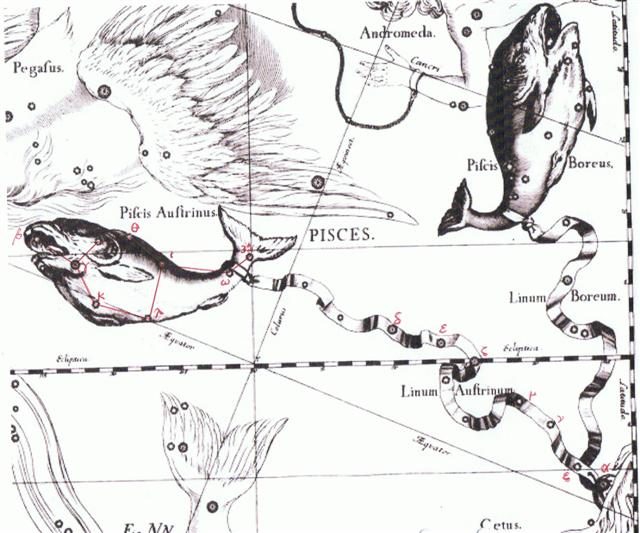 |
 |
 |
 |
 |
 |
|
*Ca14-1 |
*Ca14-2 |
*Ca14-3 (366) |
*Ca14-4 |
*Ca14-5 |
|
Kua tupu
te ata i te henua |
|
INVISIBLY CLOSE TO THE SUN
(helical dates): |
|
Sept 18 |
ο Virginis
(*182) |
ALCHITA (263) |
21 |
GIENAH (*185) |
|
ºSept 14 |
15 (*178) |
16 |
17 (260) |
18 |
|
'Aug 22 |
23 |
24 (236 = 263 - 27) |
25 |
26 |
|
"Aug 8 |
9 |
10 (222 = 2 * 111) |
11 |
12 (*144 = *327 - 183) |
|
JULY 15 |
16 (*118) |
17 (199 = 84 + 115) |
18 (200 = 383 - 183) |
19 |
|
177 = *181 - 4 |
178 = 118 + 60 |
179 = 199 - 20 |
180 |
181 |

...
After the great flood had at
long last receded, Raven had
gorged himself on the
delicacies left by the
receding water, so for once,
perhaps the first time in
his life, he wasn't hungry.
But his other appetites, his
curiosity and the
unquenchable itch to meddle
and provoke things, to play
tricks on the world and its
creatures, these remained
unsatisfied. Raven gazed up
and down the beach. It was
pretty, but lifeless. There
was no one about to upset,
or play tricks upon. Raven
sighed. He crossed his wings
behind him and strutted up
and down the sand, his shiny
head cocked, his sharp eyes
and ears alert for any
unusual sight or sound. The
mountains and the sea, the
sky now ablaze with the sun
by day and the moon and
stars he had placed there,
it was all pretty, but
lifeless. Finally Raven
cried out to the empty sky
with a loud exasperated cry.
And before the echoes of his
cry faded from the shore, he
heard a muffled squeak. He
looked up and down the beach
for its source and saw
nothing. He strutted back
and and forth, once, twice,
three times and still saw
nothing. Then he spied a
flash of white in the sand.
There, half buried in the
sand was a giant clamshell.
As his shadow fell upon it,
he heard another muffled
squeak. Peering down into
the opening between the
halves of the shell, he saw
it was full of tiny
creatures, cowering in fear
at his shadow ... |
|
CLOSE TO THE FULL MOON (and
nakshatra dates): |
|
March 19 (78) |
20 (*365) |
SIRRAH (0h) |
ALGENIB PEGASI |
23 |
|
ºMarch 15 |
16 |
17 (*362) |
18 |
19 (78) |
|
'Febr 21 (*337) |
22 (52 = 79 - 27) |
TERMINALIA |
24 |
25 |
|
"Febr 6 (37 = 220 - 183) |
7 |
8 (*325 = *366 - 41) |
9 |
10 |
|
JAN 14 (*300) |
15 |
16 (366 + 16 = 382) |
17 |
18 |
|
360 = 177 + 183 |
361 |
362 = 366 - 4 |
363 (= 360 + 3) |
364 = 384 - 20 |
|
... Heracles's rescue of
Hesione, parallelled by
Perseus's rescue of
Andromeda ... is clearly
derived from an icon common
in Syria and Asia Minor:
Marduk's conquest of the
Sea-monster Tiamat, an
emanation of the goddess
Ishtar, whose power he
annulled by chaining her to
a rock. Heracles is
swallowed by Tiamat, and
disappears for three days
before fighting his way out.
So also, according to a
Hebrew moral tale apparently
based on the same icon,
Jonah spent three days in
the Whale's belly; and so
Marduk's representative, the
king of Babylon, spent a
period in demise every year,
during which he was
supposedly fighting Tiamat
... Marduk's or Perseus's
white solar horse here
becomes the reward for
Hesione's rescue. Heracles's
loss of hair emphasizes his
solar character: a shearing
of the sacred king's locks
when the year came to an
end, typified the reduction
of his magical strength, as
in the story of Samson ...
When he reappeared, he had
no more hair than an infant
...

... In China, every year
about the beginning of
April, certain officials
called Sz'hüen used
of old to go about the
country armed with wooden
clappers. Their business was
to summon the people and
command them to put out
every fire. This was the
beginning of the season
called Han-shih-tsieh,
or 'eating of cold food'.
For three days all household
fires remained extinct as a
preparation for the solemn
renewal of the fire, which
took place on the fifth or
sixth day after the winter
solstice [Sic!]. |
|















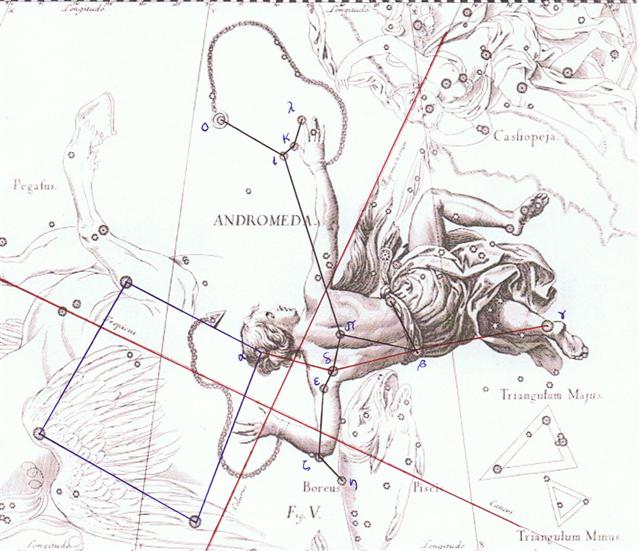




.jpg)


